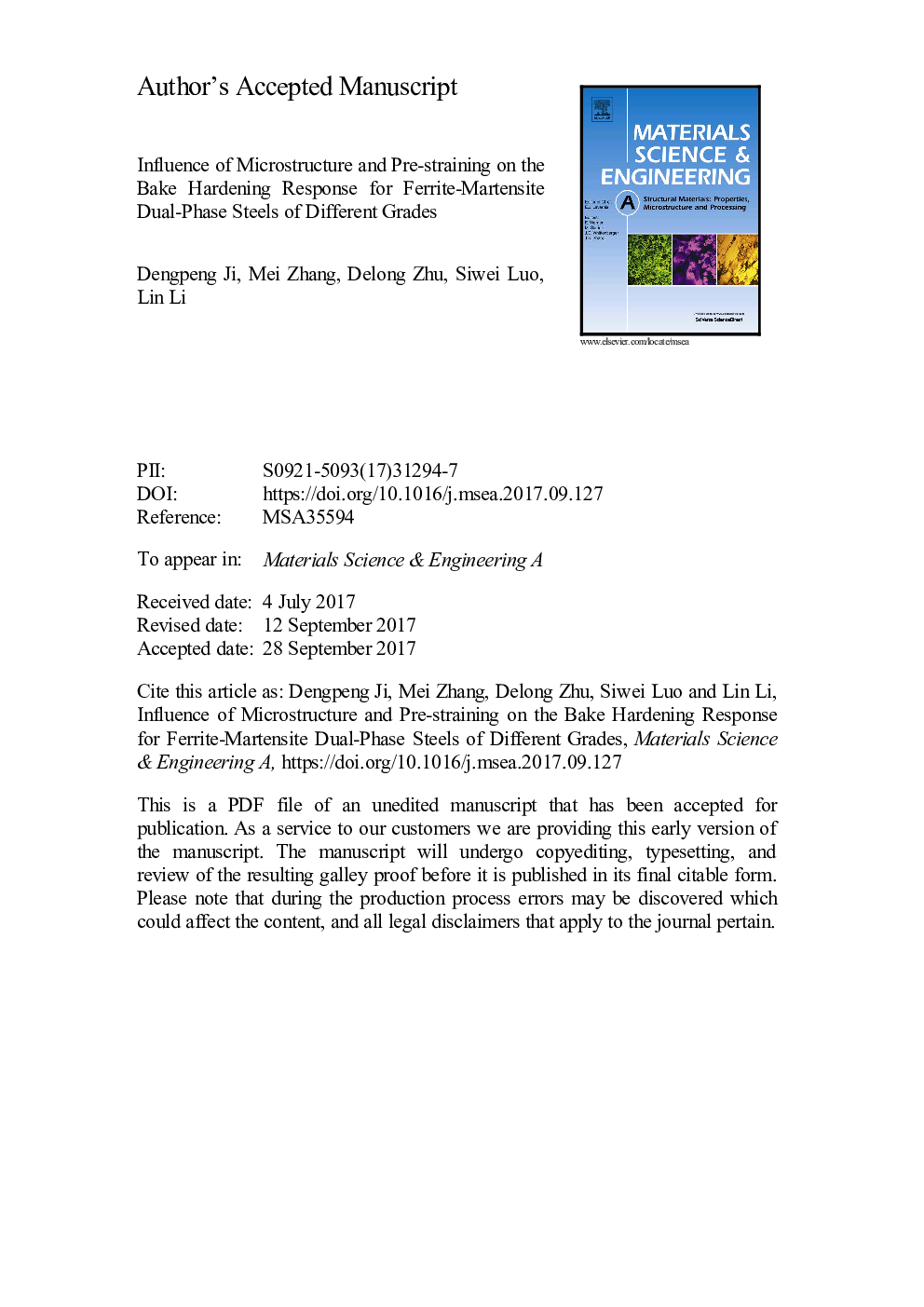| Article ID | Journal | Published Year | Pages | File Type |
|---|---|---|---|---|
| 5455107 | Materials Science and Engineering: A | 2017 | 27 Pages |
Abstract
This work aims to investigate the effects of pre-straining and microstructure on bake hardening (BH) response of dual phase (DP) steels. Four kinds of different grades of commercial DP steels, DP340/600, DP420/780, DP500/780 and DP550/980, were pre-strained in tension to 0.5%, 1%, 2%, 4%, 6% and 8%, then baked at 170 °C for 20 min followed by restraining, or just baked at 170, 190, 210, 230, 250 °C for 20 min and at 250 °C for 40 min followed by straining without pre-straining. Electron backscattered diffraction (EBSD) measurements and temperature-dependent internal friction measurements were conducted to characterize geometrically necessary dislocations (GNDs) and analyze solute carbon content and interactions between point defects and dislocations in DP steels. The results show that for all grades of DP steels investigated, BH values increase to peak values at pre-straining ranging from 0.5% to 2% and then decline with further pre-straining. At BH condition of 170 °C/20 min, peak BH values with pre-straining are 33 MPa for DP340/600, 34 MPa for DP420/780, 78 MPa for DP500/780 and 90 MPa for DP550/980 respectively. Pre-straining can cause increase in tensile strength and decrease in total elongation after baking, especially for DP500/780 and DP550/980. DP steels without pre-straining can reach very high BH0 values by applying either higher temperature or longer holding time. Solute carbon content in ferrite controls the speed of BH response in DP steels. Microstructures of higher volume fraction of martensite, smaller martensite islands and smaller ferrite grains can produce higher BH values.
Related Topics
Physical Sciences and Engineering
Materials Science
Materials Science (General)
Authors
Dengpeng Ji, Mei Zhang, Delong Zhu, Siwei Luo, Lin Li,
